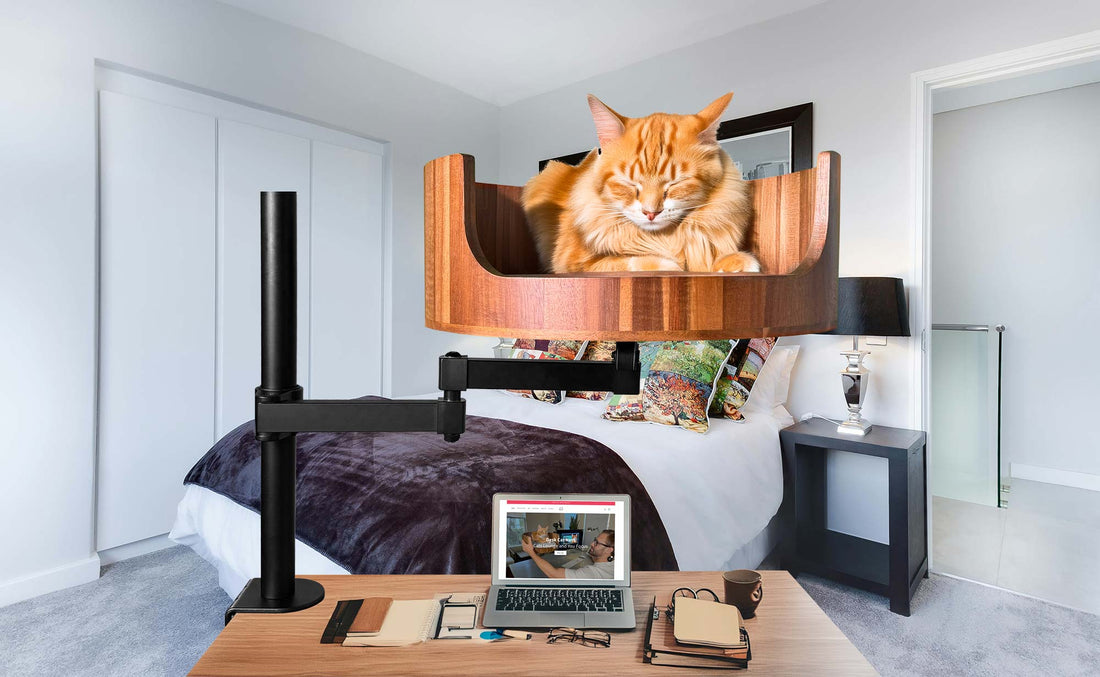
Why Does My Cat Scream After Eating? Understanding Behavior
Share
If you've ever noticed your cat making loud, dramatic meows after finishing a meal, you're not alone. Many cat owners find themselves puzzled by this behavior and wonder what could be causing it. In this article, we will explore the reasons why cats may scream after eating, delve into the possible underlying causes, and provide some tips on how to address this unsettling behavior.
One possible explanation for a cat screaming after eating is that they are experiencing discomfort or pain. Cats may suffer from issues such as dental problems, gastrointestinal issues, or even food allergies that can make eating a painful experience. Another reason for this behavior could simply be that your cat is seeking attention or trying to communicate with you in their own unique way. Understanding the motivations behind why your cat screams after eating can help you address the behavior effectively and ensure your furry friend stays happy and healthy.
1. Cats may scream after eating due to a condition called "post-prandial vocalization," which is typically harmless but can be concerning for pet owners.
2. Certain factors like excitement, attention-seeking behavior, or underlying medical issues could contribute to your cat's vocalizations after mealtime.
3. Understanding your cat's unique habits and behavioral cues can help you differentiate between normal and abnormal mealtime behaviors.
4. Keeping a consistent feeding schedule and providing a calm, stress-free environment during meals may help alleviate post-eating vocalizations.
5. Consulting with a veterinarian is recommended if your cat's screaming persists or is accompanied by other concerning symptoms.
Understanding Cat Behavior
Cats are known for their mysterious and often quirky behaviors. One common behavior that may puzzle cat owners is the tendency for their feline companion to scream after eating. This behavior can be concerning and confusing, but it is important to understand that cats communicate through various vocalizations, including meowing, purring, and yes, screaming. By understanding the reasons behind this behavior, you can better address your cat's needs and ensure their overall well-being.
Possible Reasons for Cat Screaming After Eating
There are several reasons why a cat may exhibit vocalization, such as screaming, after finishing their meal. One possible reason is that your cat is simply expressing satisfaction or contentment. Just like humans may let out a sigh of content after a fulfilling meal, cats may vocalize their pleasure in a similar manner. On the other hand, screaming after eating could also indicate discomfort or pain, such as digestive issues or dental problems. It is crucial to observe your cat's overall behavior and any other accompanying symptoms to determine the underlying cause of their vocalization.
Addressing Cat Screaming Behavior
If your cat is consistently screaming after eating and you suspect that it is due to discomfort or pain, it is essential to consult with a veterinarian for a thorough examination. Your vet can help diagnose any underlying health issues that may be causing your cat's behavior and recommend appropriate treatment. Additionally, ensuring that your cat's diet is suitable for their needs and maintaining regular dental care can help prevent potential issues that may lead to screaming after eating. Remember to provide a quiet and peaceful environment for your cat to enjoy their meals without any distractions or stressors. By addressing your cat's needs and understanding their behavior, you can foster a strong bond and ensure their happiness and well-being.
Frequently Asked Questions about Desk Cat Nest for Cats who Scream after Eating
Why does my cat scream after eating?
There are several reasons why your cat may scream after eating. It could be due to excitement and anticipation of food, discomfort or pain while eating, a medical issue such as dental problems or a digestive issue, or behavioral issues such as anxiety or aggression. It is important to observe your cat's behavior closely and consult with a veterinarian to determine the underlying cause.
How can Desk Cat Nest help with my cat's screaming after eating?
Desk Cat Nest provides a comfortable and secure space for your cat to eat in peace. The raised design helps promote better digestion and reduces the risk of discomfort while eating. The cozy nest-like structure can also help alleviate anxiety or stress that may be causing your cat to scream after eating.
Is Desk Cat Nest suitable for all types of cats?
Desk Cat Nest is designed to accommodate cats of various sizes and breeds. However, it is always important to consider your individual cat's preferences and needs. Some cats may prefer open feeding areas, while others may thrive in a more enclosed space like Desk Cat Nest. It is recommended to introduce Desk Cat Nest gradually and observe your cat's response to ensure they are comfortable with the new feeding environment.
Can Desk Cat Nest help with other behavioral issues in cats?
Desk Cat Nest is primarily designed to address the specific issue of cats screaming after eating. However, the cozy and secure design of Desk Cat Nest may also help with other behavioral issues such as anxiety or aggression. Providing your cat with a safe and comfortable space to eat and relax can have a positive impact on their overall wellbeing.
In conclusion, providing your cat with a comfortable and soothing environment to eat in, such as the Desk Cat Bed, can greatly help alleviate the issue of your cat screaming after eating. The Desk Cat Bed offers a cozy and secure space for your feline friend to enjoy their meals without feeling anxious or stressed. By promoting relaxation and reducing mealtime anxiety, the Desk Cat Bed can ultimately improve your cat's overall dining experience and help prevent any excessive vocalization behaviors. Invest in the Desk Cat Bed for your cat's wellbeing and enjoy the benefits of a peaceful mealtime routine for both you and your furry companion.



















































